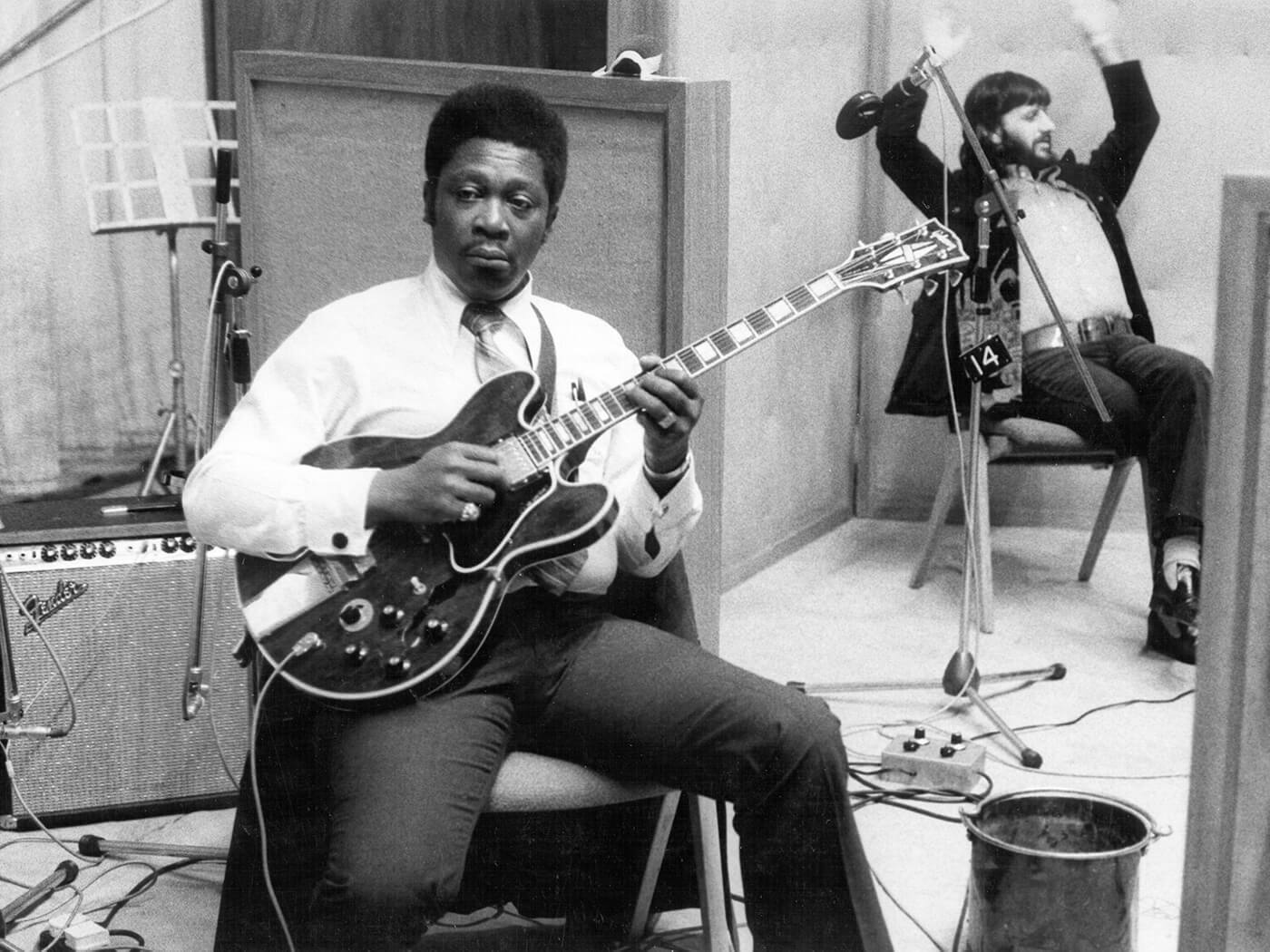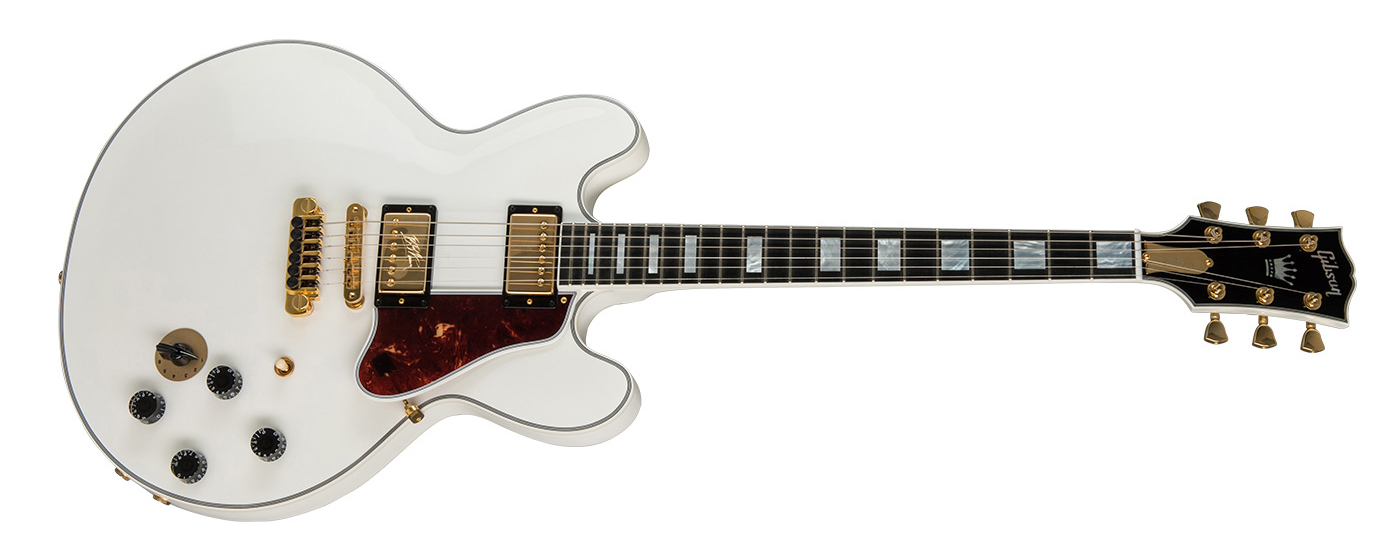Related Tags
Why BB King’s Lucille was more than just any old guitar
On the anniversary of the legendary bluesman’s passing, we remember one of the most iconic instruments of all time.

BB King with Lucille during the recording of his album BB King In London. And, yes, that’s Ringo Starr in the background. Image: Michael Ochs Archives / Getty Images
“I’m very crazy about Lucille, Lucille took me from the plantation,” so sang the late great BB King on his 1968 ode to his beloved guitar, Lucille. But while the annals of popular music are full of guitarists forming spiritual bonds with their instruments, there was something about BB’s love for Lucille that seemed extra special – the two were truly inseparable.
And yet, the reality is that Lucille wasn’t a guitar… not one guitar, anyway. The first guitar to bear the name was a Gibson L-30 archtop that BB had bought for $30. As King was fond of retelling, the guitar’s name came from an incident in a bar that nearly cost him his life.
In 1949, a young King was playing in a bar in Twist, Arkansas in the dead of winter, and lacking anything better, the building was heated with a large drum of filled with burning kerosene. If you’re thinking that doesn’t sound particularly safe, you’d be right. King recalled that two patrons of the bar got into a fight over a woman, the drum was knocked over, and in short order the bar was ablaze.
King managed to make it out in one piece, but realising he’d left his guitar inside, he dashed back in to retrieve it, just making it out in time as the wooden building collapsed in flames around him.
In the aftermath, King learned that the name of the woman who sparked the fight was Lucille, and so he decided to christen his guitar likewise “to remind me never to do a thing like that again”.
What’s in a name?
So that L-30 was the first Lucille, but it certainly wasn’t the last. In truth, King gave the name to whatever guitar was his main squeeze at the time. “Fenders, Gretsches, Silvertones – you name them, I’ve probably had one,” he told Guitar Player back in 2007. “When I found that Gibson with the long neck, that did it. That’s like finding your wife forever.”
That “Gibson with the long neck” was of course the iconic Gibson ES model, and over the following decades the King would play almost every variant of the model – 335s, 345s, 355s… all of them named Lucille.
It’s no surprise that eventually Gibson cottoned on to this fact and in 1980, launched a signature model that would bear his name – the Gibson Lucille. With its gloss black finish and tortoiseshell scratchplate, it might have looked like any other 335 from a distance, but the differences were important.
King had often stuffed the f-holes on his guitars to minimise feedback, so when it came to creating Lucille, he asked for them to be dispensed with altogether. Further differing from the norm, unlike practically every Gibson guitar, the neck is made of maple instead of mahogany.
In terms of electronics and hardware, the guitar owes much to the ES-355TD-SV model that had been his most recent Lucille, complete with stereo wiring and a Varitone switch, while the tailpiece swaps the standard stopbar in favour of a TP-6 Fine Tune model.

And then there’s the headstock, the eye-catching crown and ‘BB King’ inlays in pearl, perfectly accenting the guitar’s plush black and gold aesthetic. It was every bit a guitar fit for a King.
BB played various versions of the Gibson Lucille from 1980 until his death in 2015, but the guitar’s power endures. For 2019, Gibson has re-released the Lucille with all the high-end appointments and unique flourishes you’d expect – but dressed in Alpine White.
It might not be exactly the same Lucille that BB played for much of his later career, but given the guitar’s long and complex history, it’s also rather fitting.
Read our archived interview with BB King here.
